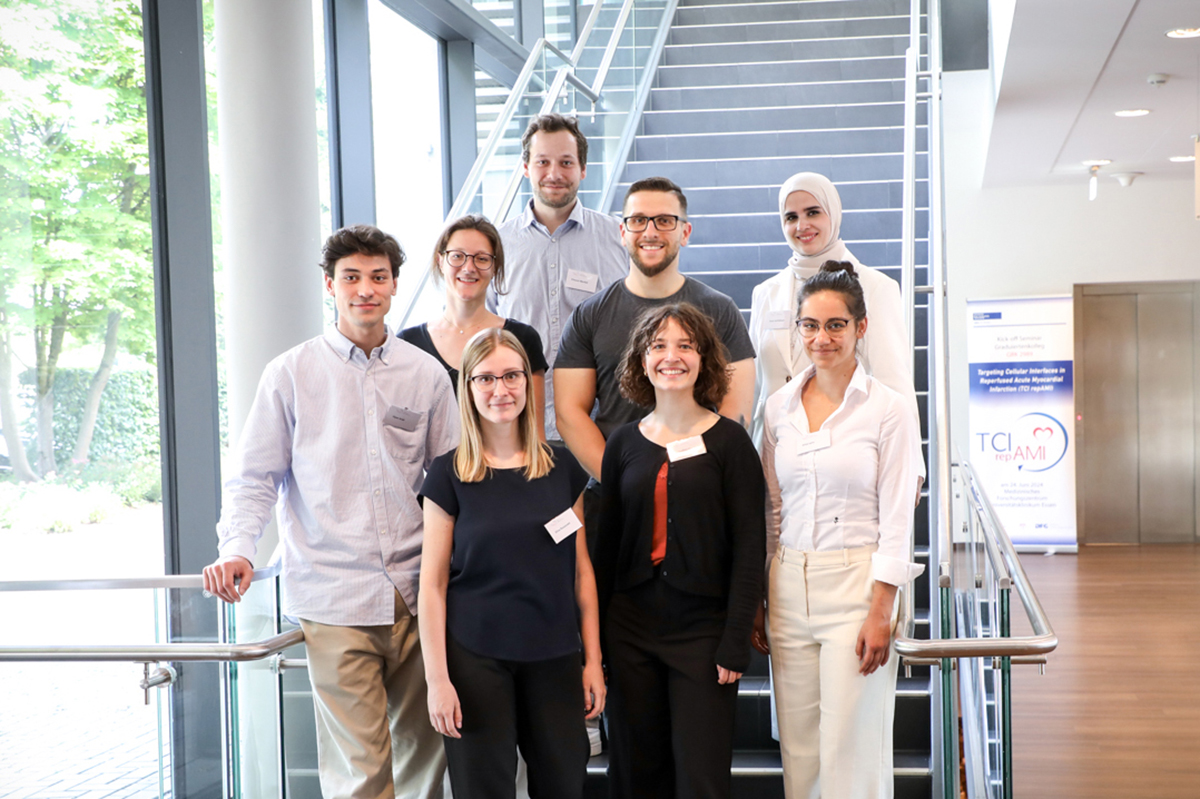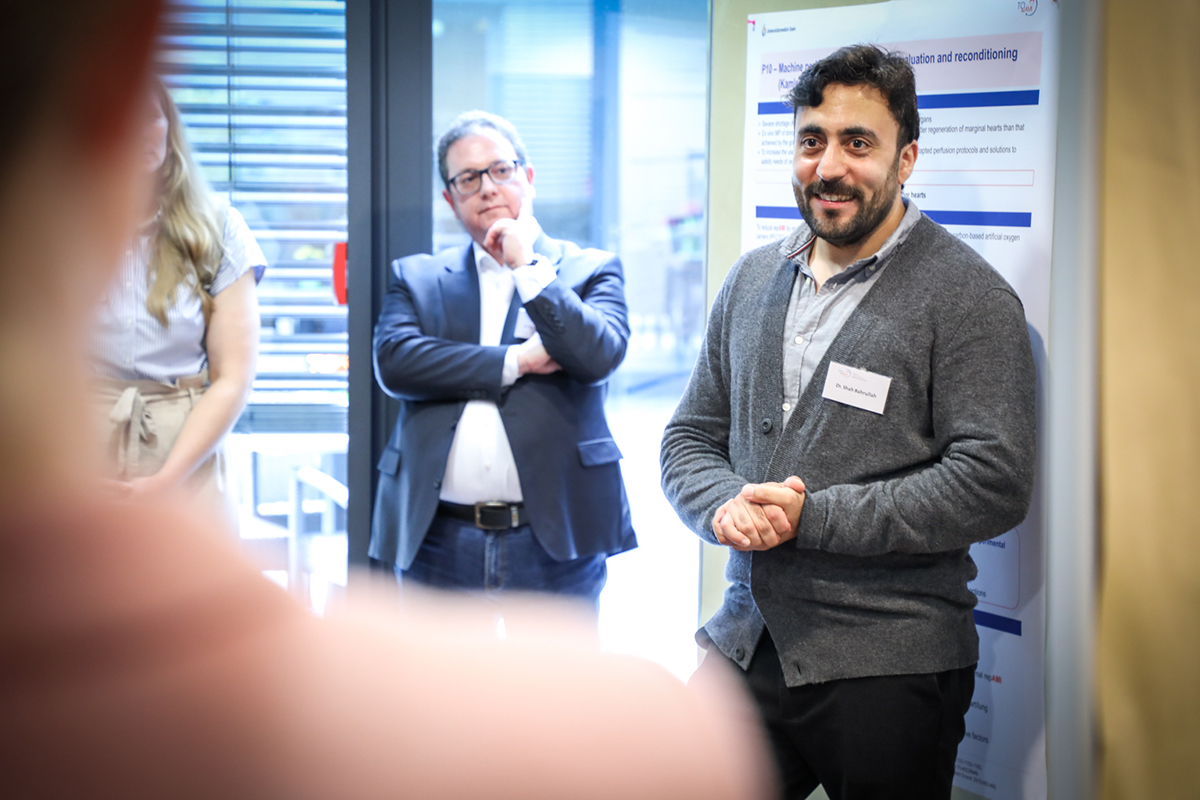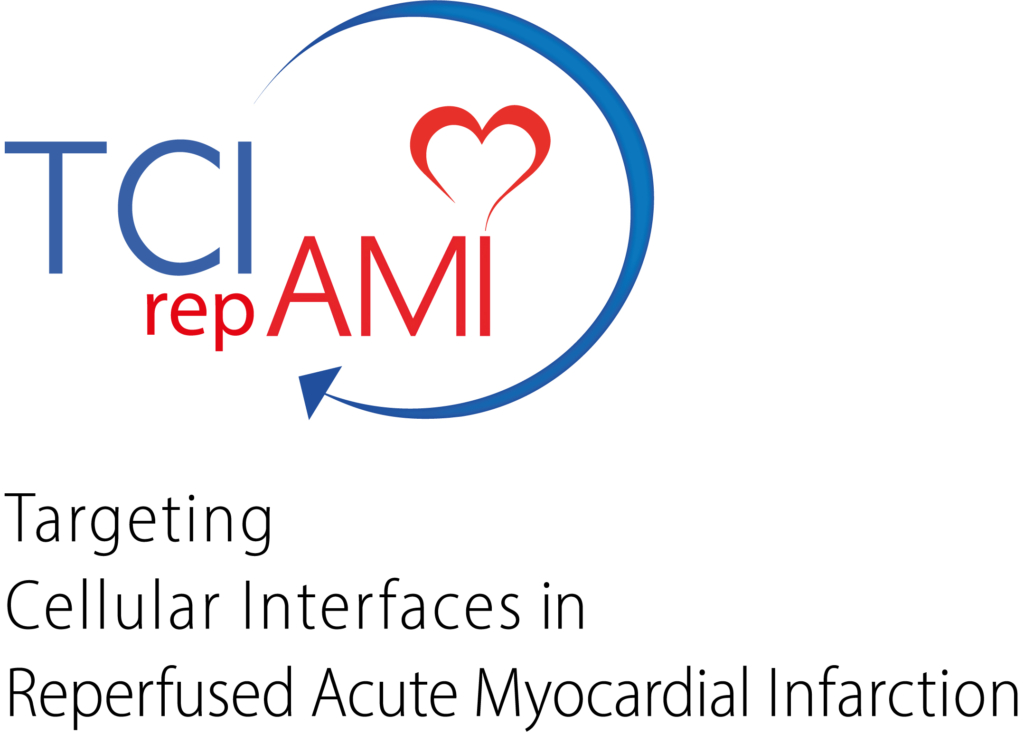
DFG Research Training Group 2989
Targeting cellular interfaces in repAMI
The RTG 2989 focuses on the distinct cellular interfaces in reperfused acute myocardial infarction (repAMI), which include the immune system, the vasculature and the cardiomyocytes. Based on a highly synergistic approach, the RTG 2989 research projects are led by interdisciplinary teams of cardiovascular scientists in conjunction with experts from the field of infection and immunology. A successful implementation of new treatment strategies can only be achieved through the identification of a clinical problem, the characterization of the underlying cellular interfaces and the subsequent testing in patients known as the “bed-to-bench-to-bed”-principle. Taking this into account, the RTG 2989 is characterized by a novel program structure that provides outstanding doctoral students with the clinical and basic scientific skills required for an excellent training leading to successful research outcome and the characterization of new treatment options in the future. Key components of the RTG 2989 are: unified animal models of reperfused acute myocardial infarction, patient cohorts under supervision of the Cardiac Trial Unit (CTU), Tandem PIs consisting of a clinician and a basic scientist for each graduate, Internal Advisory Committees (IAC) and an ensuing mentoring program with a Translational Mentoring Board (TMB) and an External Scientific Advisory Board (ESAB).
For further information please visit the RTG 2989 website. Application for doctoral scholarships for medical students is still open.

